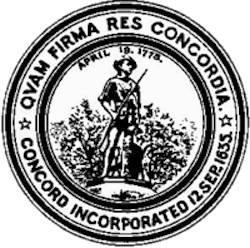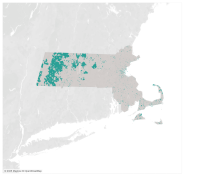Concord, Massachusetts, has a strong literary history with famous authors like Thoreau, Emerson, and the Alcott sisters, but all puns aside, the town also has a long-standing community broadband network, Concord Light Broadband.
Years ago, the community voted to build its own network from their electric utility, and they have just now transitioned to high-speed fiber optics.
From Electric to Broadband
Concord is one of only forty Massachusetts municipalities with an electric utility and in the early 2000s, their electric thermal storage system needed an overhaul. The technology, based on the phone system’s network, was becoming obsolete. The electric utility chose to overbuild the existing system with fiber optics in order to create a smart-grid to automatically read electric meters. Concord recognized the opportunity presented by a fiber network backbone spread throughout town.
It only made sense to look at broadband options; the only thing left to do was to build out the last-mile, the section of network that connects to the home or business. They estimated the cost for the smart-grid and last-mile to be $4 million and would finance it through municipal bonds.
Once Bitten, Twice Shy of Big Incumbent Cable Companies
Large incumbent cable companies had not served the community well and the people wanted better connectivity. Massachusetts’ state law requires a town to vote at two consecutive town meetings to establish the authority to build a broadband network through the electric utility, commonly referred to as Municipal Light Plant or MLP. The MLP is the town department responsible for the transmission and supply of electricity to the residents and businesses in the town. As communities have started to develop their own municipal Internet networks, the MLPs have also taken on a similar role with regard to connectivity. After establishment of an MLP is approved, then the community votes again on funding for the initiative.
In 2003, the people of Concord began considering what they could accomplish with a municipal network, and they held the first vote at the Annual Town Meeting. The resolution passed by a 2/3rds majority vote. The second Annual Town Meeting was scheduled for April 2004.
In February 2004, the New England Cable & Telecommunications Association (NECTA) and the authors of the Beacon Hill Institute (BHI - Suffolk University) report organized a campaign against the proposed network. (BHI is better known for its misinformation campaigns in the area of clean energy.)
In response, a grassroots effort developed to counteract misinformation disseminated by NECTA and BHI. After an intense campaign (detailed in an American Public Power Association case-study), the town voted in favor of the network again. This time, it was an even more resounding "no" to big telecom -- only 12 people voted against the proposed network.

The Network
After experimenting with a Broadband over Power Line initiative in 2007, Concord turned its efforts to a fiber optic network to obtain a more robust backhaul system. In 2010, Concord Municipal Light Plant (CMLP) issued $4 million in Bond Anticipation Notes, which are a short term way of financing a project. Eventually the town issued a municipal bond; the amount requested by the CMLP when bonds are issued are typically repaid through each projects' revenues.
Schools, businesses, and municipal government services acted as anchor tenants, ensuring that the new network, ConcordNet, would have business. In March and April of 2014, ConcordNet began pilot projects for the high-speed residential system which has symmetrical upload and download speeds.
The network is now citywide and serves over 400 subscribers about 7,600 residential subscribers out of the town's population of approximately 17,700. Unlike many other networks, ConcordNet does not offer triple-play, a bundled service of TV, phone, and Internet. Entering the video market seemed too difficult according to the Chief Information Officer Mark Howell. Instead, they chose to focus on data. They also collaborate on initiatives through the Berkman Center at Harvard to encourage cooperation among other municipal networks.
ConcordNet is accountable to the people that own it and is thus far accomplishing the goals of better connectivity and creating savings gained through the smart-grid. The community is benefitting and thinking ahead to find the next use for their fiber investment.







